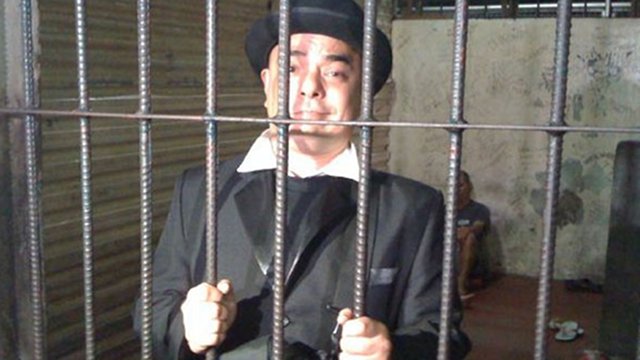This is why Carlos Celdran is currently in jail.
[nggallery id=5]This is why Carlos Celdran is still in jail.
Revised Penal Code, Art. 133. Offending the religious feelings. — The penalty of arresto mayor in its maximum period to prision correccional in its minimum period shall be imposed upon anyone who, in a place devoted to religious worship or during the celebration of any religious ceremony shall perform acts notoriously offensive to the feelings of the faithful.
And this why I think Carlos Celdran should be let out of jail.
The key words, to my mind, are “notoriously offensive.”
What the man did was to stand in front of the pews – apparently not on the altar – and show a placard that had DAMASO printed on it. Then, he shouted “STOP PLAYING POLITICS.” Granted that he did all that, in a “place devoted to religious worship,” during a “religious ceremony,” the question remains: were his acts notoriously offensive?
I don’t know if BATASnatin is considered a legal authority, but it has this to say about that qualifier:
The act contemplated is one which ridicules or makes fun of a practice, tenet, dogma, or belief, otherwise the offense is unjust vexation. These may be oral or written statements or actions.
In this connection, the Supreme Court’s ruling in People v. Reyes (G.R. No. L-40577, August 23, 1934) is also pretty instructive.
It is to be noted that article 133 of the Revises Penal Code punishes acts “notoriously offensive to the feelings of the faithful.” The construction of a fence, even though irritating and vexatious under the circumstances to those present, is not such an act as can be designated as “notoriously offensive to the faithful”, as normally such an act would be a matter of complete indifference to those not present, no matter how religious a turn of mind they might be.
The disturbance or interruption of any ceremony of a religious character under the old Penal Code was denounced by article 571 and was punished by arrest from one to ten days and a fine of from 15 to 125 pesetas. But this article was omitted from the Revised Penal Code and the offense, if any was committed by the appellants, is denounced in article 287 as an “unjust vexation” and punished by arresto menor or a fine ranging from 5 to 200 pesos or both.
Telling a group of religious that they ought to stop playing politics certainly offers no ridicule of their religious beliefs. In fact, telling the Church to stay out of politics has never gotten a rise out of anyone in robes; such calls are routinely ignored, and therefore clearly not offensive. It only makes an impact now because it was done in Church and while some sort of ceremony was going on. But then those circumstances, without the element of “notorious offense to religious feelings,” only gives rise to the offense of unjust vexation.
Is that an important distinction? For the accused, it is. If convicted of Article 133, the man stands to be penalized with arresto mayor, potentially spending up to six months in jail. But if convicted of unjust vexation, he gets a maximum of 30 days and a fine of 200 pesos. Ideologically, it is also significant because it emphasizes the lack of intent to offend the faith. And clearly, Carlos Celdran’s antics were not meant to mock Catholicism but to call attention to the perceived tendency of clergy to dabble in politics.

